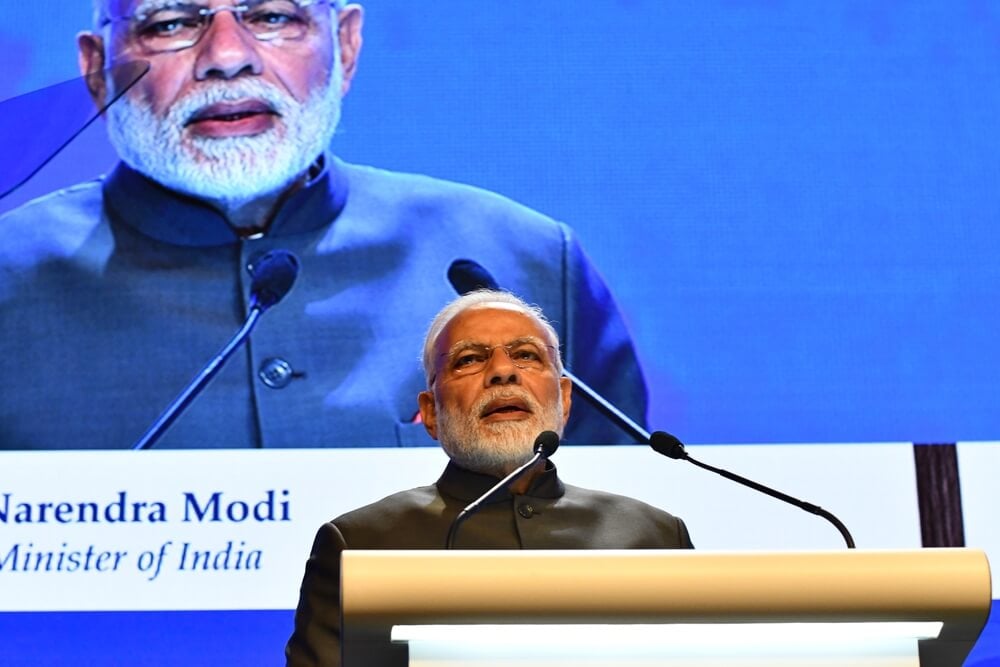The Shanghai Cooperation Organisation (SCO) heads of state and government meetings last attracted major global attention two years ago, when the Chinese head of state Xi Jinping told Vladimir Putin in Samarkand, Uzbekistan, that he had "questions and concerns" about Russia's aggression against Ukraine.
So far, this is the most serious, publicly documented Chinese reservation against a Russian invasion of Ukraine. Meanwhile, Beijing attempted not to provide fresh evidence that it could persuade Moscow to terminate its Ukrainian mission.
The just-concluded SCO summit in Astana, Kazakhstan, confirmed that the organisation is back on track of creating an anti-Western political, economic, and security alliance, and there were no surprises as of 2022.
In the final declaration of the ten-member bloc that Russia and China founded in 2001 together with the states of the former USSR from Central Asia, two of the three biggest current global crises, those in Ukraine and the one regarding Taiwan, were not mentioned.
The bloc, which advocates "resisting external interference" (Xi Jinping) and considers itself "one of the key pillars of a just multipolar world order" (Putin), has remained silent on two of the three biggest global security crises.
This is important because the SCO's founders are also the initiators of these crises. So, mentioning them in a joint statement would require a more comprehensive and probably unsatisfactory explanation for some of the other members of the alliance.
Autocrats do not make waves
As a result, the SCO continued to act in a way that was characteristic of the strict, autocratic regimes that rule the majority of the bloc's members, and most definitely its two most powerful founders.
"The use of force is increasing, the norms of international law are systemically being violated, geopolitical confrontation and conflicts are growing, and risks to stability in the world and the SCO region are multiplying," stated the communiqué from the summit in Kazakhstan.
At the SCO summit in Kazakhstan, form has once again prevailed over substance
It is paradoxical that the Western multilateral alliances regarding China's aggressive actions in East Asia and the overwhelmingly adopted UN resolutions against Russian aggression in Ukraine share the same logic.
At the SCO summit in Kazakhstan, form has once again prevailed over substance in a forum where China, followed by Russia, sets the agenda.
Following Iran last year, the organisation is now welcoming Belarus, another isolated country with an autocratic leader and Russia's only remaining European ally.
What is the point of enlargement?
For Moscow, the inclusion of Belarus in the SCO is a significant propaganda tool to show the domestic public, weary of international isolation, that it is still influential on the global stage because it manages to "squeeze" its closest allies into broad coalitions.
For Belarus and its leader, Alexander Lukashenko, this is an opportunity to strengthen ties with China and secure its much-needed investments, which have long been stagnant in Belarus.
As a result, the SCO bloc enlargement will remain the only concrete consequence of the Astana summit, as well as another chance for Xi and Putin to meet, marking their second meeting in the past two months.
increasing the number of allies in organisations that have more or less the same mission of resisting the West does not solve their shared structural issues
In its already established dominance of form over substance, the SCO follows the BRICS, an organisation in which China and Russia also play an important role.
And since the BRICS have not taken any tangible steps to strengthen their role, they used the enlargement last year as "proof" of their importance and vitality. Thus, the alliance admitted Egypt, Ethiopia, Iran, and the UAE.
However, increasing the number of allies in organisations that have more or less the same mission of resisting the West does not solve their shared structural issues.
This, above all, represents the lack of concrete integration results, followed by a collection of actors with serious disagreements, including border disputes, all exposed to China's growing influence as by far the most dominant member.
India's indifference
The SCO is a good example of how the two powerful founders, China and Russia, have diverged in their interests in relation to their Central Asian partners since the start of Russia's aggression against Ukraine.
Over the last two and a half years, the four states of the region have shown a serious distancing from Russia, their traditional number one partner, primarily because it can no longer provide a shared security framework.
 India has confirmed that it is aware of the objectives of this model of multilateral cooperation, leaving it to Beijing to lead the game for both the SCO and the BRICS
India has confirmed that it is aware of the objectives of this model of multilateral cooperation, leaving it to Beijing to lead the game for both the SCO and the BRICS
Second, the region economically dominated by Kazakhstan is increasingly turning to China because it does not want to jeopardise its own economic future by maintaining relations with sanctioned Russian companies.
A high-ranking Kazakh diplomat previously described this position by saying that his country did not wish to "find itself behind a new iron curtain," i.e., share the fate of Russia's isolation for circumventing sanctions.
After the Astana summit, the SCO remains one of the platforms through which Beijing strengthens its economic and political influence, paying little attention to the lack of purpose and identity of the alliance it founded and leads.
In this respect, India has confirmed that it is aware of the objectives of this model of multilateral cooperation, leaving it to Beijing to lead the game for both the SCO and the BRICS.
Foreign Minister Subrahmanyam Jaishankar represented India at the summit in Astana instead of Indian Prime Minister Narendra Modi. He held talks with the Chinese chief of diplomacy, Wang Yi, including on border issues, which are undoubtedly a higher priority for New Delhi than the SCO's engagement in reshaping the global order.